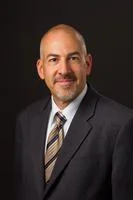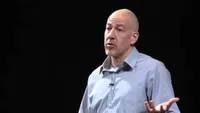
Like you, motivation and addiction expert Dr. Michael Pantalon has heard of various ways of motivating addicted individuals. But what really works? Are ultimatums and holding people accountable the best ways to go or is motivation more about compassion and good communication? Do “interventions” really work? Am I enabling if I’m not pushing treatment as hard as possible? Do you confront unmotivated people head-on or delicately? How do you motivate yourself to conquer an addiction?
Is motivation to change an addiction really this complicated? Absolutely NOT !
With over two decades of experience as a psychologist, motivation and addiction expert, researcher, leadership, health and recovery coach, consultant, trainer, speaker, and author of the business best-seller, Instant Influence (2011), Mike’s view is radically different. Motivating people with addictions is not as hard as you think and anyone can do it. As an addiction therapist, he helps his clients appreciate that the most profound way to motivate yourself and others is to realize the following 3 simple yet deep truths: 1) No one absolutely has to change – we are all free to decide for ourselves, 2) Everyone (including you) already has enough motivation, and 3) Unlocking your inner motivation is not a lengthy and mysterious process. In fact, it can be done with a 7-minute method developed by Mike and based on over 3 decades of science. It has to do with asking 6 simple questions about WHY we want to change versus HOW we plan to do so.
So, what do we mean by Progressive ? At the Center for Progressive Recovery , or CPR , we believe that true recovery comes from within the addicted individual versus from outside pressure. Thus, the responsibility for change is placed in the hands of the addicted individual by acknowledging that he/she is FREE to decide whether or not to change, FREE to decide WHY they might want to change and FREE to choose HOW they would like to change. This approach, while counterintuitive to some, is the best way to motivate people with addictions, especially if they’ve been “resistant” in the past. When they feel freed up to make their own decisions (with guidance, of course), a reserve of internal motivation for a new life may finally come forward and with it actual steps toward recovery.
We’re also progressive when conducting treatment (which is done in Dr. Pantalon's private practice, which is not part of CPR), because we believe that our clients can direct their own treatment and because we offer the best treatments that science has to offer in an outpatient setting, where the focus is on tailoring the intervention to the person versus the other way around.
Mike is known for boiling-down very complex behavior change theories into simple techniques that anyone can use. This is the “translator” part of Mike, which is rooted in his childhood, during which he spent a lot of time literally translating for his immigrant parents. He also has a reputation for being able to motivate some of the toughest, most “resistant” patients, from the inner city of the Bronx, New York to the board rooms of corporate America.
Mike’s clients consistently say that he helped them find motivation where they thought there was none . Subsequently, not only did they recover from addiction, but it was far easier than they anticipated and the motivation spread to other areas of their life.
When he’s not working with his CPR clients, Mike conducts studies on the effectiveness of brief motivational interventions for ER patients abusing alcohol, opiates, tobacco and other substances. Mike loves to speak pro bono at nonprofits and healthcare organizations, and feels especially connected to the work he’s done at homeless shelters. He keeps a watchful eye on nonprofits, as well, and is very impressed with the work of the Integrated Refugee & Immigrant Services (IRIS) in New Haven, CT, which helps immigrants and refugees transition to the US. This cause is near and dear to him because of his own immigrant parents. He also greatly appreciates the good that the Connecticut Health Foundation is doing to improve health care access for disadvantaged communities and ethnic/racial minorities. Mike’s personal passion is playing the guitar. He loves jazz music, especially jazz-funk. But be forewarned, if you start talking to him about jazz guitarists or guitarists in general, he won't stop until you make him.
Mike has been on the faculty at Yale School of Medicine since 1997. He is a Senior Research Scientist in Department of Emergency Medicine, Assistant Clinical Professor in the Department of Psychiatry and Lecturer at Yale University’s Psychology Department. He is also a contributor to the Institute of Coaching at Harvard University and faculty member at Wellcoaches, Inc. Mike earned his B.A. in psychology from Binghamton University, his M.A. and Ph.D. in clinical & school psychology from Hofstra University and his M.S. in psychopharmacology from the Massachusetts School of Professional Psychology. He received the Distinguished Faculty Award for Teaching from Yale School of Medicine’s Department of Psychiatry in 2007.
So, what’s the bottom line? What Mike would most like for you to get from his work is that there is always hope for an addicted person to change and that the change could come more easily if the focus is on the addicted person’s choices and wishes, because the desire to change is already inside of them. It is that simple.
Mike’s Center for Progressive Recovery and private practice are located in downtown New Haven, just off of Yale’s main campus. Feel free to contact him for an appointment at [email protected] or call 203-506-3134.

Dr. Marianne Pantalon is the Cofounder and the COO of the Center for Progressive Recovery. After hearing the founder of Kiva, Jessica Jackley, speak about Social Entrepreneurship, she was inspired to found her own behavioral health startup. CPR is now her third startup and her passion about using business as a means to help solve pressing social issues continues to grow. She is most happy when she is helping others realize their full potential and thrives on creating not only efficient, but pleasurable work flows. She loves to apply her psychological background in the strategic planning of a company as well as in the various design aspects. As a fan of graphic design, typography, video production, user experience, etc…. anything that has to do with the design and visual representation of a business, she is looking forward to being involved with the redesign of this current website...stay tuned.
Marianne received her BA in psycholgy from Binghamton Univeristy and her MA (with distinction) and PhD in School and Clinical Psychology from Hofrstra University. In 2014, she was the proud recipient of the Boehringer Ingelheim More Heath Through Innovation Award. She is currently a Facilitator (in training) in the Interpersonal and Group Dynamics Program at Yale University School of Management. As the Chair of the CT Psychologically Healthy Workplace Program, she enjoys promoting the growth of psycholgically healthy practices in the workforce of Connecticut.




